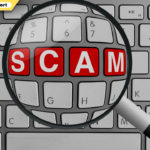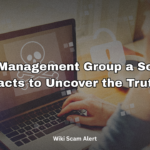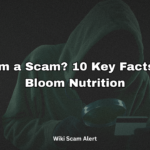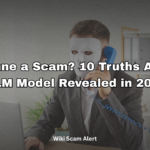Stay safe with 10 warning signs of the Golden Harvest Sweepstakes Scam at WikiScamAlert.com. This fraudulent scheme lures victims with fake prizes, stealing millions annually. Learn to spot red flags and protect your finances in 2025!
What Is the Golden Harvest Sweepstakes Scam?
The Golden Harvest Sweepstakes Scam falsely claims you’ve won millions, a luxury car (e.g., Mercedes-Benz), or weekly payments (e.g., $5,000 for life). Contacted via phone, email, or mail, victims are asked to pay fees to claim non-existent prizes. In 2023, sweepstakes scams cost victims $338 million, per the FTC. Check More Here:- Fab Over 40: Scam or Legit Opportunity? The Truth Reveale
How the Scam Works
Scammers pose as reputable organizations (e.g., Publishers Clearing House, Mega Millions) or invent fake sponsors like “Golden Harvest.” They use robocalls, letters, or emails, claiming funds are held at the Federal Reserve Bank. Victims pay “taxes” or “processing fees” ($300–$4,800) via wire transfers or gift cards, receiving nothing.
Why It’s Dangerous
Victims, often seniors or financially vulnerable, lose life savings or face identity theft after sharing bank details. Scammers exploit trust in brands like Reader’s Digest, urging secrecy to prevent verification. The FTC reported 157,520 sweepstakes fraud cases in 2023, ranking third among fraud types.
Common Tactics of Scammers
Scammers use official-looking documents with forged logos, fake checks ($9,000–$9,900), or urgent deadlines (10 days). They may claim prizes are government-supervised or require confidentiality to isolate victims. Calls often originate from area codes like 516, 347, or 843, using spoofed numbers.
Protecting Yourself
Verify claims independently using official company contacts (e.g., Publishers Clearing House’s website). Never pay to claim prizes, as legitimate sweepstakes are free. Report suspicious calls to the FTC at ftc.gov or 1-877-382-4357. Visit WikiScamAlert.com for scam prevention tips and reporting guides.

Warning Signs Overview Table
| Warning Sign | Risk Level | Verification Method |
|---|---|---|
| Upfront Fees | High | Check official sponsor’s rules |
| Unfamiliar Sweepstakes | High | Search sweepstakes name online |
| Fake Check with Notice | High | Verify check with bank (10–14 days) |
| Urgent Action Demanded | High | Contact sponsor directly |
| Confidentiality Requests | High | Discuss with trusted family/friends |
| Free Email Addresses | Medium | Verify via official company email |
| Suspicious Phone Numbers | Medium | Trace number via reverse lookup |
| Misleading Sponsor Names | Medium | Confirm with real sponsor’s contact |
| Personal Info Demands | High | Never share bank or SSN details |
| Unprofessional Communication | Medium | Compare with legitimate notifications |
10 Warning Signs of the Golden Harvest Sweepstakes Scam
1. Upfront Fees Required
Description: Scammers demand fees ($300–$4,800) for “taxes,” “insurance,” or “processing” to release your prize.
Impact: Legitimate sweepstakes never require payments; victims lose money sent via wire transfers or gift cards.
Verification Process: Check the sponsor’s official website (e.g., pch.com) for prize rules (5 min). Call the IRS to confirm tax procedures (10 min). Report to FTC if fees are requested (5 min).
Example: A victim sent $4,800 for a “Golden Harvest” Mercedes prize, receiving nothing.
Tip: Hang up if payment is requested.
2. Unfamiliar Sweepstakes Name
Description: You’re told you won “Golden Harvest Sweepstakes,” but you never entered it.
Impact: Scammers invent contests; only entered sweepstakes can yield wins. Victims lose time and money.
Verification Process: Google the sweepstakes name (5 min). Check reputable sites like pch.com or readersdigest.com for legitimacy (5 min). Contact sponsors directly using official numbers (10 min).
Example: Victims reported “Golden Harvest” calls despite never entering.
Tip: Ignore notifications for unknown contests.
3. Fake Check Included with Notice
Description: A check ($9,000–$9,900) arrives with a win notice, asking you to wire part back for “fees.”
Impact: Checks are counterfeit; cashing them incurs bank fines, and wired money is unrecoverable.
Verification Process: Wait 10–14 days for bank clearance (call bank, 5 min). Verify check issuer (e.g., Wells Fargo) independently (10 min). Report to bank if suspicious (5 min).
Example: A $9,700 check from “Golden Harvest” was fake, costing victims $2,800 wired back.
Tip: Never cash unsolicited checks.
4. Urgent Action Demanded
Description: Scammers pressure you to act within days or “forfeit” your prize.
Impact: Urgency prevents verification; victims send money hastily. Legitimate sponsors allow time.
Verification Process: Slow down; contact sponsor via official channels (10 min). Discuss with family (15 min). Report to FTC for high-pressure tactics (5 min).
Example: “Golden Harvest” set a 10-day deadline, pushing a victim to pay $300.
Tip: Take at least 24 hours to verify.
5. Confidentiality Requests
Description: Scammers insist you keep the win secret to “protect funds” or avoid “third-party theft.”
Impact: Isolation prevents advice; victims miss scam warnings from others.
Verification Process: Discuss with trusted friends or family (15 min). Search scam reports on ftc.gov or bbb.org (10 min). Contact sponsor directly (10 min).
Example: A victim was told not to tell anyone about a “Golden Harvest” $2.5 million win.
Tip: Share with someone you trust immediately.
6. Free Email Addresses
Description: Win notices come from Gmail, Yahoo, or other free email accounts, not official domains.
Impact: Legitimate companies use branded emails (e.g., @pch.com); free accounts signal fraud.
Verification Process: Check sender’s email domain (2 min). Verify via sponsor’s official website contact (5 min). Report phishing to email provider (5 min).
Example: A “Golden Harvest” email from goldenharvest@gmail.com was flagged as fake.
Tip: Ignore emails from non-business domains.
7. Suspicious Phone Numbers
Description: Calls come from unfamiliar area codes (e.g., 516, 347, 843) or spoofed numbers.
Impact: Scammers use VoIP or spoofing to hide locations; tracing is difficult.
Verification Process: Use reverse phone lookup (e.g., Whitepages, 5 min). Call sponsor’s official number (10 min). Block and report to FTC (5 min).
Example: A “Golden Harvest” call from (843) 548-4623 was reported as a scam.
Tip: Don’t answer unknown numbers; let voicemail screen.
8. Misleading Sponsor Names
Description: Scammers claim affiliation with Publishers Clearing House, Reader’s Digest, or Mega Millions, but “Golden Harvest” isn’t their contest.
Impact: False legitimacy tricks victims; real sponsors don’t run “Golden Harvest.”
Verification Process: Visit pch.com, rd.com, or megamillions.com to confirm contests (5 min). Call sponsors directly (10 min). Report fakes to BBB (5 min).
Example: “Golden Harvest” falsely claimed PCH sponsorship, deceiving a victim.
Tip: Verify sponsor names on official sites.
9. Demands for Personal Information
Description: Scammers request bank account numbers, Social Security numbers, or credit card details to “release funds.”
Impact: Sharing leads to identity theft or drained accounts; legitimate sponsors don’t need this.
Verification Process: Never share sensitive info. Contact sponsor via official channels (10 min). Report to FTC and freeze accounts if shared (15 min).
Example: A “Golden Harvest” scammer asked for a victim’s bank details for a $5 million prize.
Tip: Hang up if personal info is requested.
10. Unprofessional Communication
Description: Notices have poor grammar, misspellings, or overly casual tones (e.g., “Your lucky day!”).
Impact: Legitimate sponsors use professional language; errors signal fraud.
Verification Process: Compare with official PCH or Reader’s Digest notices (5 min). Search for scam reports online (10 min). Report to FTC (5 min).
Example: A “Golden Harvest” call was described as slurred and unprofessional, raising suspicion.
Tip: Be wary of sloppy or overly enthusiastic messages.
Scam Tactics Table
| Tactic | How It Works | Protection Strategy |
|---|---|---|
| Fake Checks | Sends counterfeit checks for fees | Verify with bank, wait 10–14 days |
| Robocalls | Automated calls claim big wins | Use call blocker, report to FTC |
| Official-Looking Mail | Uses logos, seals, forged signatures | Check sponsor’s website, report to BBB |
| Spoofed Numbers | Hides caller location | Reverse lookup, block number |
| Fake Affiliations | Misuses PCH, Reader’s Digest names | Confirm with official sponsor contact |
Tips for Avoiding Sweepstakes Scams
- Verify Independently: Use official websites or phone numbers to confirm wins (10 min).
- Never Pay: Legitimate prizes are free; refuse any fee requests (immediate).
- Report Suspicious Activity: File complaints with FTC or BBB (5–10 min).
- Use Call Blockers: Apps like YouMail can screen robocalls (5 min setup).
- Educate Others: Share scam alerts on WikiScamAlert.com to protect friends.
Conclusion
10 warning signs of the Golden Harvest Sweepstakes Scam equip you to spot and avoid this pervasive fraud. By recognizing red flags like upfront fees and fake checks, you can safeguard your finances in 2025. Visit WikiScamAlert.com for more scam prevention tips and share your story on Twitter with #WikiScamAlert!
Frequently Asked Questions (FAQs)
What is the Golden Harvest Sweepstakes Scam?
It’s a fraud claiming you’ve won millions, a car, or weekly payments, but requires fees to claim non-existent prizes, often misusing names like Publishers Clearing House.
How do scammers contact victims of this scam?
They use robocalls, emails, letters, or social media, often from spoofed numbers (e.g., 516, 347) or free email accounts like Gmail.
Why do scammers ask for secrecy?
They isolate victims to prevent verification, claiming secrecy protects funds or avoids “third-party theft,” a tactic to stop you from seeking advice.
Can I trust a check sent with a win notice?
No, checks are often fake, leading to bank fines if cashed. Verify with your bank and wait 10–14 days for clearance before acting.
Where can I report a suspected Golden Harvest scam?
Report to the FTC at ftc.gov or 1-877-382-4357, your state’s Attorney General, or BBB. Share details on WikiScamAlert.com to warn others.










